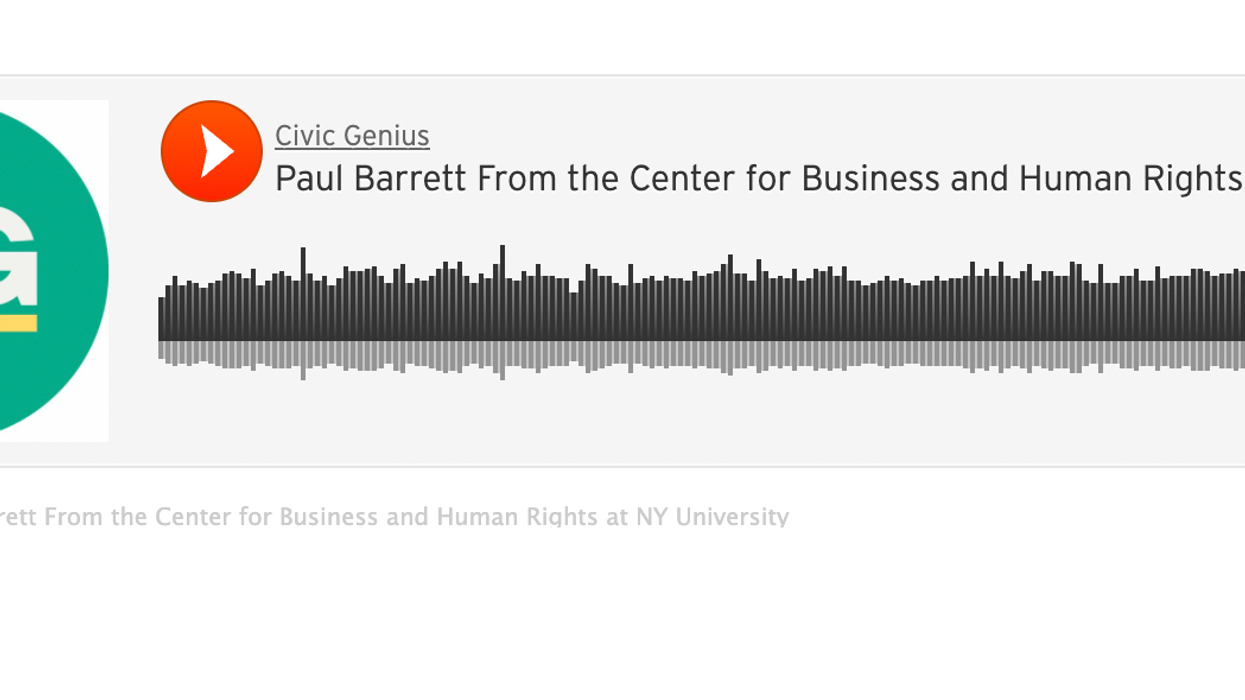There are dozens of bills in Congress that would regulate social media in some way, but this week’s Civic Genius podcast guest has another idea to throw into the mix. Paul Barrett is Deputy Director of the Center for Business and Human Rights at New York University, and his new report recommends that the Federal Trade Commission (FTC) regulate social media companies.
Could this proposal cut back online misinformation without running afoul of the First Amendment? Listen in to hear Barrett explain why he thinks so.




















